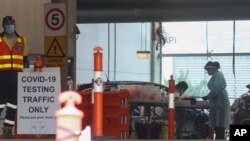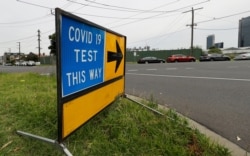Australians will receive a certificate as proof of receiving a coronavirus vaccine when a mass inoculation program starts later this month. Foreign travelers are also likely to need similar confirmation of a COVID-19 shot when Australia’s international borders finally reopen.
Australia has spent millions of dollars on public health campaigns urging the community to have a COVID-19 inoculation. There is hesitation in some quarters because of the speed with which treatments have been developed, but authorities expect the vast majority of Australians to be vaccinated.
The elderly and other priority groups will start to receive the Pfizer-BioNTech vaccine later this month, while the AstraZeneca drug is expected to be approved by Australian regulators within weeks.
Recipients will be given proof that they have received the treatment.
Vaccine certificates are expected to allow Australians easier access to nursing homes and hospitals, which have strict disease controls because of the vulnerability of residents and patients.
The so-called virus passports could also give Australians permission to cross state internal borders in the event of future lockdowns. Many were closed during the pandemic to curb the spread of the coronavirus, but families were separated and businesses disrupted. The documents could also assist with international travel.
The government hopes to offer all Australians a vaccination by the end of October.
Government Services Minister Stuart Robert says the documentation will be easily accessible.
“The key thing for Australians to know is they will have a record. They will have a digital and paper certificate. For some 89 percent of Australians who have a smartphone, they will be able to access that digital certificate in their smartphone, download it onto their phone as a permanent record. They will be able to print it out. Every Australian will have a record of their vaccination should they need it," Robert said.
Opposition politicians are wary of the government’s competence to deliver the passports properly. They insist it has a poor track record of delivering COVID-19 support services online.
Foreign travelers are also likely to need similar confirmation of a coronavirus injection when Australia’s international borders finally reopen. They were closed last March.
Australian citizens and permanent residents are allowed to return home, but face between 14 and 24 days in mandatory hotel quarantine at their own expense when they return.
Australia has recorded 28,850 coronavirus infections, and 909 people have died, according to the health department. It estimates there are 52 active cases across the country.
The nation’s virus strategy has relied on mass testing, sophisticated contact tracing, strict lockdowns and restrictions on international travel.





